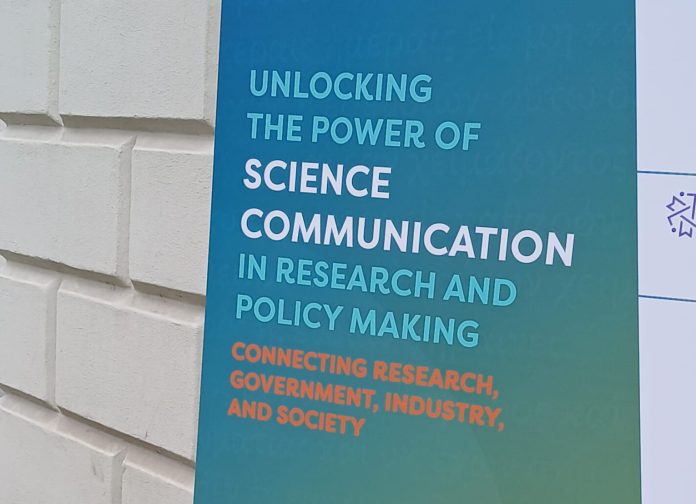A High-Level Conference on Science Communication ‘Unlocking the Power of Science Communication in Research and Policy Making’, was held in Brussels on 12 and 13 March 2024. The conference was co-organised by the Research Foundation Flanders (FWO), Fund for Scientific Research (F.R.S.-FNRS), and Science Europe under the auspices of the Belgian Presidency of the European Union (January–June 2024).
The conference was attended by the science communicators, research and funding organisations, policy makers and other stakeholders. The discussions hinged around importance of integrating science communication in research ecosystems, prioritising its significance at various levels, engaging citizens and advocacy for public investment in research. Development of institutional tools to enhance researchers’ communication skills; recognition of science communication as a profession; and combating misinformation were some of the other pertinent areas of deliberations among the participants.
Key recommendations of the conference are
- Incentivise science communication within research environments through better recognition and support. Funding support should be provided for dedicated training in communication skills; for the further integration of communication activities into career paths; and to foster national and international collaborative platforms to share best practices. Researchers should be recognised and rewarded for their efforts in science communication as part of research assessment systems.
- Recognise science communicators as professionals who apply evidence-based approaches, and science communication as a distinct field of expertise and research. Collaborations between researchers and communicators are pivotal to ensure that research results are usable, accessible, and transferable to citizens and society at large and to build understanding of the scientific process within different audiences.
- Promote and develop AI literacy and data transparency for the responsible use of Artificial Intelligence in science communication. Trust in AI will depend on organisational engagement in issues of accountability, transparency, regulation, and bias to ensure this tool’s ethical and effective integration into research and communication practices.
- Adopt a set of core principles for responsible science communication based on transparency, inclusivity, integrity, accountability, respect for autonomy, and timeliness. This makes it necessary to address challenges such as transparency in scientific communication, fostering critical public discourse, enhancing media literacy, respecting disciplinary differences, multilingualism, and prioritising the critical thinking skills and trust of young people in science.
Science communication connects research to public, government and industry. Stakeholders should work towards advancing it as an integral pillar of research and innovation for the benefit of society.
***
Sources:
- Science Europe. Resources – Science Communications Conference Strategic Conclusions. Posted 25 March 2024. Available at https://scienceeurope.org/our-resources/science-communications-conference-strategic-conclusions/
***






































